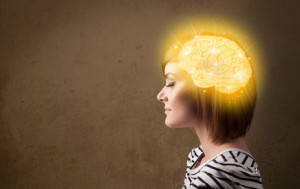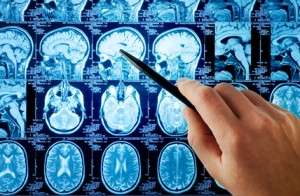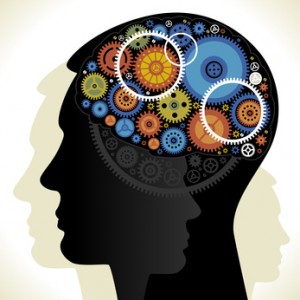Jonathan Morgan
 A while ago, the social psychologist Roy Baumeister wrote a piece on free will for Slate. In an age where neurobiologists claim to understand love because they understand some neural correlates, Baumeister’s philosophical piece is a breath of fresh air. His argument hinges on the idea of causation, which is a good place to put any argument about free will. When it comes down to it, isn’t whether we have free will a question about what causes our actions? Saying that I’m writing this essay of my own free will is the same as saying that nobody is forcing me to write.
A while ago, the social psychologist Roy Baumeister wrote a piece on free will for Slate. In an age where neurobiologists claim to understand love because they understand some neural correlates, Baumeister’s philosophical piece is a breath of fresh air. His argument hinges on the idea of causation, which is a good place to put any argument about free will. When it comes down to it, isn’t whether we have free will a question about what causes our actions? Saying that I’m writing this essay of my own free will is the same as saying that nobody is forcing me to write.
But when scientists claim that we have no free will, they aren’t talking about personal interactions. They’re talking about physics and chemistry. The idea is that we live in a world where cause and effect are determined by physical laws. When my bike goes downhill, it goes quickly. Thanks gravity! When I put on my brakes, my bike stops. Thanks friction! When I hit those train tracks, I wreck. Ouch! We live in a physical world and that world is governed by predictable laws. Physics is really good at describing those laws. But does this mean that if we just had enough information about physics then we’d understand why I got on my bike in the first place?
No, that’s silly. Baumeister makes this point by noting that each science deals with different causes. More importantly, as we move up the ladder of complexity, new causes enter the picture. Economics can’t, and shouldn’t, focus on the strong nuclear force as the cause of the European Debt Crisis. No doubt, if there wasn’t the strong nuclear force (that’s the one that makes the nuclei of atoms hold together) there’d be no European Debt Crisis. There probably wouldn’t be much. Thanks nuclear force! But dependence isn’t the same as causation.
That’s all well and good when it comes to the difference between atoms and international economies. But what about the leap from neurology to experience- is this too far to talk about causation? Here we enter some murky ground and it’s not entirely clear how to proceed.
But I think Baumeister gives us a helpful guide. Yes, experience depends on the brain working well. And interesting things can be found by studying the brain. For example, emotions are heavily involved in decision-making. That’s worth knowing and reveals new aspects of our experience. In the same way that physics constrains my bicycle, neurology likely constrains our experience. Understanding some of those constraints can help us understand experience in new ways. But to argue that the neurons firing cause certain experiences is likely to miss the point.
It misses the point because experience always happens on a social level. Even if I’m alone in the woods, I’m still interacting with the woods. So if you want to understand experience, are you better off looking at the interactions between neurons or the interactions between people and their environment? Well, both, but looking at the level of the environment is probably going to be more meaningful.
So what does all this have to do with religion? It hopefully raises the question: what is the appropriate level to study religion? Should religion be studied like economics- focusing on the community level? Or is it more appropriate to study religion at the psychological level, like personality or desires? Are meaningful insights likely to come from neuroscience or physics? Of course the answer to all these questions is, yes! Each level will contain different insights about religion.
The larger point is that each level can’t be meaningfully reduced to those below it. Doing so would cause you to miss essential pieces of religion. If you were to argue that religion is all about psychological benefits, then you’d miss the larger social dynamics that forge religion through a history of conflict and politics. Likewise, if neuroscientists find a pathway that lights up when people meditate, they can’t reduce religion to this stream of chemical juices. That pathway may tell us some interesting things about religious experiences, but it’s not the only thing going on. In fact, it may not even be the most relevant thing going on!
All levels are significant and they should be considered in tandem. So as more research emerges about religion and the brain, be wary of any claims that religion is just such and such a neural pathway. These notions are about as silly as claiming that free will doesn’t exist just because we depend on the physical environment.
 Consider yourself in ten years. What’ll you be like? Will you be as funny, kind, or wise as you are now? Now, as you’re thinking about yourself in 2024, consider one more thing- how connected do you feel to this version of yourself? How real does she or he feel?
Consider yourself in ten years. What’ll you be like? Will you be as funny, kind, or wise as you are now? Now, as you’re thinking about yourself in 2024, consider one more thing- how connected do you feel to this version of yourself? How real does she or he feel?



